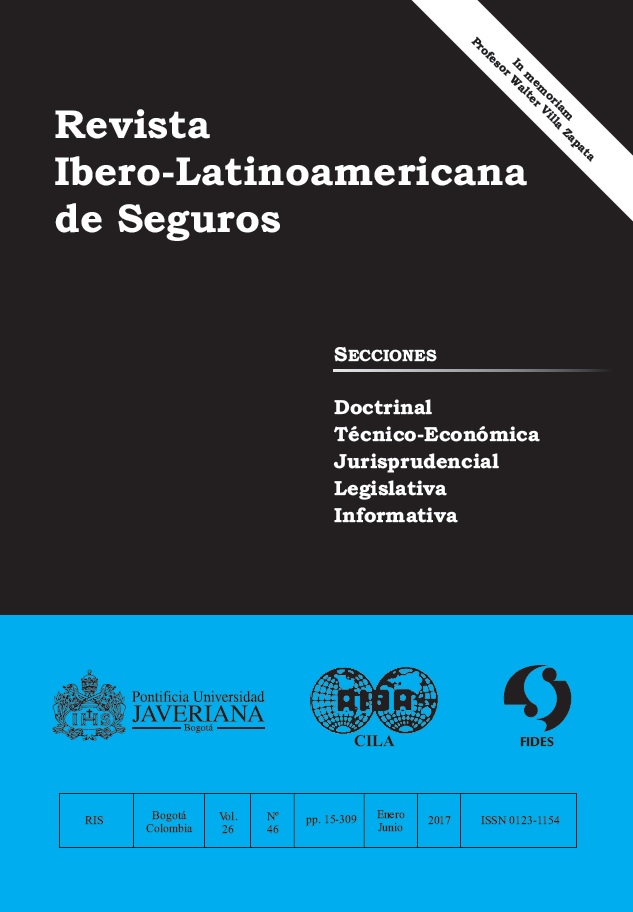Abstract
Insurance is a contract in which the good faith has special prominence and it is present throughout the entire contractual relationship, that is, in the pre-contractual stage, during the insurance period and even after the occurrence of the insured event. Similarly, as well as the law promotes good faith, it also seeks to deter fraud through all the same stages. Colombian law is no stranger to this and in this sense when it regulates the insurance contract it establishes a set of rules that promote good faith and discourage and punish bad faith and fraud. These rules are mainly the following: a) the duty to disclose and not misrepresent the risk; b) the prohibition on taking insurance based on illegal causes or motives; c) the prohibition to cover or secure claims caused intentionally or willfully by the policyholder, insured or beneficiary d) the duty to file claims in good faith; and e) the existence of the indemnity principle in property insurance and the consequent regulation of coexistence and overinsurance.
This journal is registered under a Creative Commons Attribution 4.0 International Public License. Thus, this work may be reproduced, distributed, and publicly shared in digital format, as long as the names of the authors and Pontificia Universidad Javeriana are acknowledged. Others are allowed to quote, adapt, transform, auto-archive, republish, and create based on this material, for any purpose (even commercial ones), provided the authorship is duly acknowledged, a link to the original work is provided, and it is specified if changes have been made. Pontificia Universidad Javeriana does not hold the rights of published works and the authors are solely responsible for the contents of their works; they keep the moral, intellectual, privacy, and publicity rights.
Approving the intervention of the work (review, copy-editing, translation, layout) and the following outreach, are granted through an use license and not through an assignment of rights. This means the journal and Pontificia Universidad Javeriana cannot be held responsible for any ethical malpractice by the authors. As a consequence of the protection granted by the use license, the journal is not required to publish recantations or modify information already published, unless the errata stems from the editorial management process. Publishing contents in this journal does not generate royalties for contributors.


